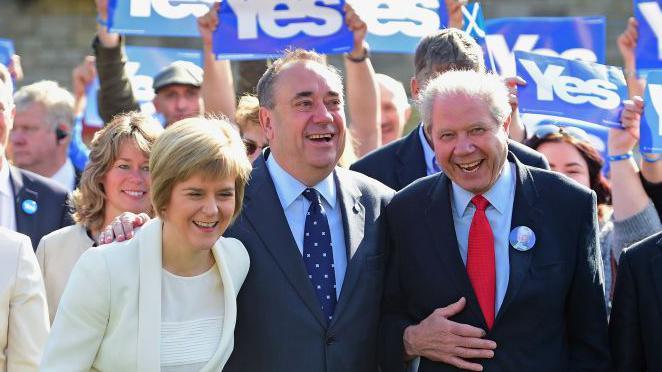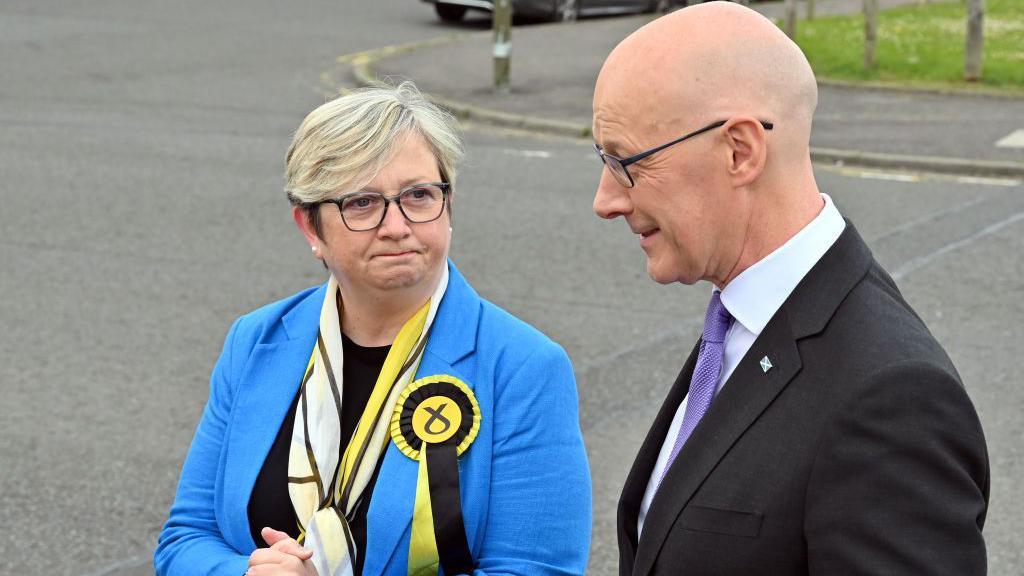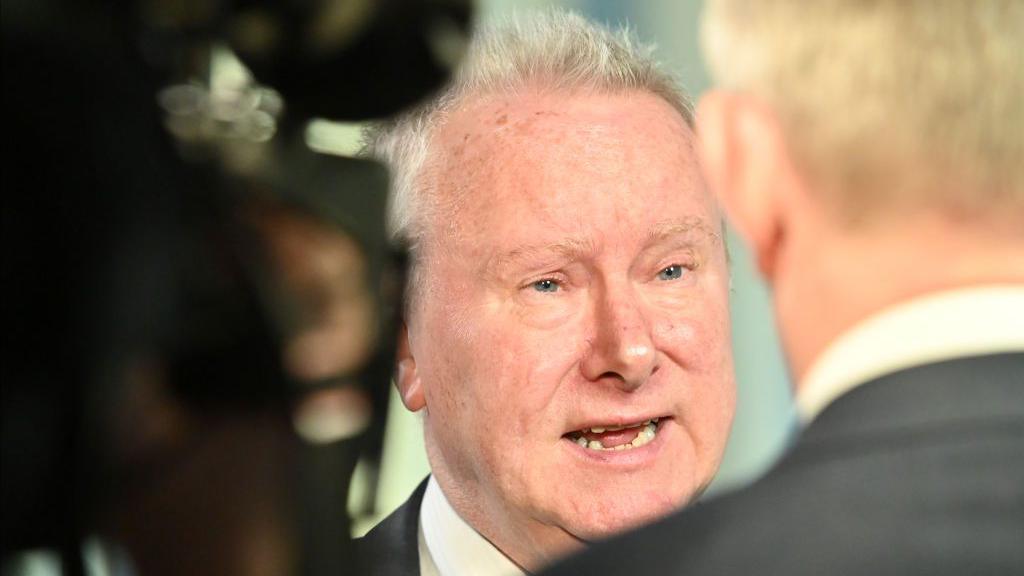What does 'Stalin' attack on Sturgeon's SNP mean for Swinney?

Former SNP deputy leader Jim Sillars (right) pictured alongside Alex Salmond and Nicola Sturgeon
- Published
It is an excoriating attack.
Jim Sillars' description of Nicola Sturgeon as "Stalin's wee sister", running the SNP as a "leadership cult", will leave no one in any doubt of who he blames for its general election drubbing.
Mr Sillars is a veteran of the party who has long questioned the leadership's approach, particularly its strategy for achieving independence.
In an open letter to party members, the former deputy leader of the SNP also described John Swinney's current leadership as "a busted flush", and called for the "tarnished old guard to step aside".
Starmer and Swinney to work together on 'common ground'
- Published7 July 2024
Forbes backs Swinney to improve SNP 'integrity'
- Published8 July 2024
Independence supporters 'disillusioned' with SNP - Cherry
- Published7 July 2024
Dismissing the idea for a period of reflection, he wrote: "It should be repentance, because 4 July was inevitable given how the Sturgeon/Swinney era misled the movement, lost its common sense in government, promoted marginal issues as national priorities while the real priorities of the people such as education, housing, NHS, infrastructure, were notable only for the staggering level of incompetence with which they were dealt with."
For those who follow Scottish politics closely, his critique will come as no surprise.
But the brutal tone of his letter has upped the ante, as the SNP rakes over the coals of its first electoral defeat in more than a decade.
The party returned just nine MPs, down from 48 in 2019, with a complete wipe-out across the central belt.
The result was worse than many members had feared - and the ballots were still being counted when the inevitable fallout began.
'The ship has gone down'
Joanna Cherry, ousted from her Edinburgh seat, was among the first to point the finger of blame at Nicola Sturgeon, calling on her to apologise.
In the past she's been an outspoken critic, most notably of the former first minister's pursuit of gender recognition reforms, and the centralisation of power among a few key figures at the top of the party.
At the weekend she told Sky News that voters had become "disillusioned" with the SNP over its failure to progress the case for independence.
She also told The Guardian newspaper, external that John Swinney - taking over after a turbulent year under Humza Yousaf - had failed to steady the ship, adding "the ship has gone down".

Joanna Cherry on the campaign trail with SNP leader John Swinney
While Ms Cherry didn't explicitly call on Mr Swinney to resign, former cabinet secretary Alex Neil argues the first minister's position has become untenable after just two months in the job.
He has called for the Deputy First Minister Kate Forbes and the Westminster leader Stephen Flynn to take over at the top of the SNP.
This is hardly surprising given his backing for Ms Forbes during last year's leadership contest.
So, with the blame game intensifying, is Mr Swinney at risk of becoming another casualty of the election?
In short, there seems next to no chance of that happening.

Alex Neil served in government with John Swinney
Indeed there appears to be no appetite among senior SNP figures for another change at the top.
As former Westminster leader Iain Blackford told the Sunday Mail newspaper, external: "There isn't really anybody else, so he's the man for it".
If the SNP's elected politicians are content with Mr Swinney's leadership, what about the party's grassroots?
Mr Sillars' letter also calls on the broader SNP membership to repent.
"You got so used to not thinking for yourselves that you allowed the party to be hollowed out intellectually," he told them.
The former deputy leader continued: "Time to take back the power of the party."
Popularity among the membership was one of the reasons Mr Swinney was seen as the obvious choice for leader just a couple of months ago.
And there are no signs his standing among the grassroots is withering yet.
Still, there are plenty of questions for the party to address in this stormy post-Sturgeon era.
And it will have to be quick to find answers, with a Holyrood election looming in 2026.